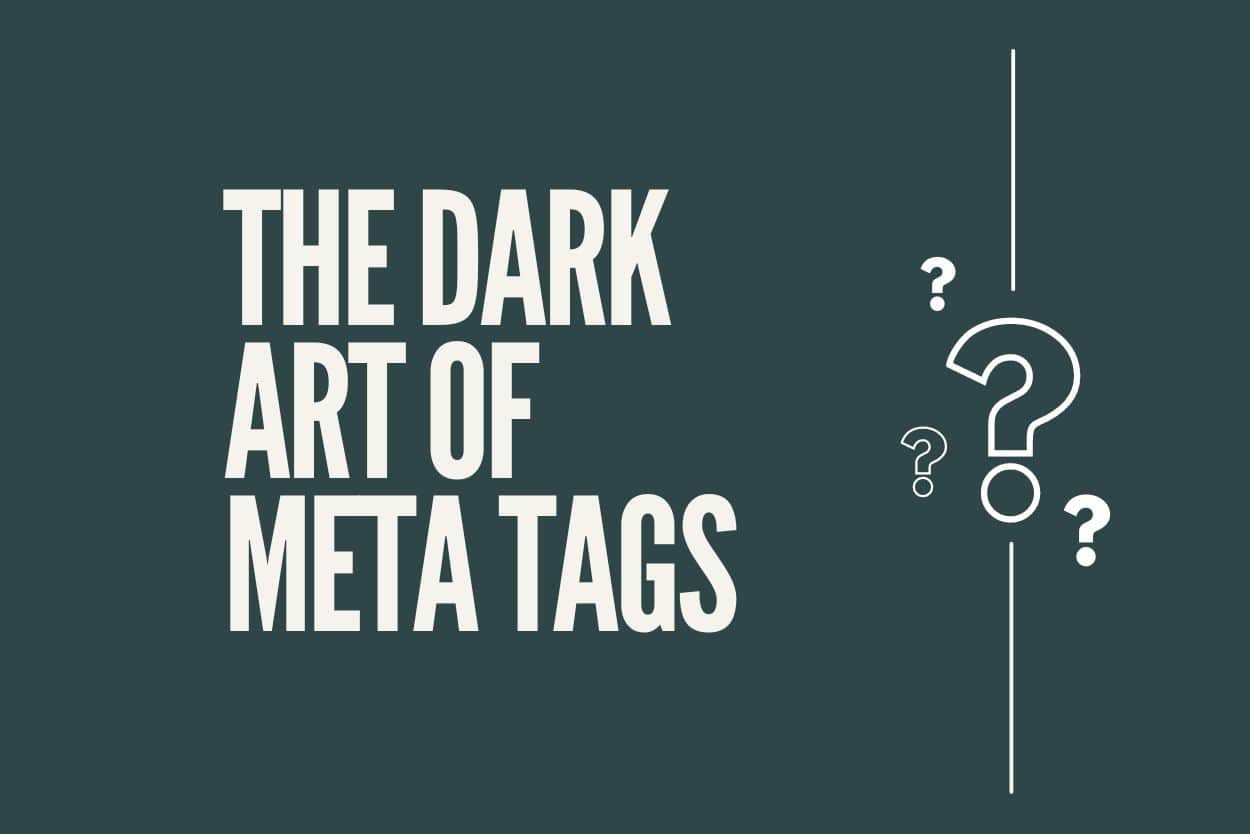Blog > The Dark Art of Meta Tags

SEO is a topic that is always being discussed in the Create Community Group on Facebook and one of the things that regularly crops up is what to put in your Meta tags.
These tags tell search engines and other online services what your website page is about in a format they like. You can use them to affect the way your site appears to users viewing the search results (like ours in the image below).

These tags can be a bit tricky and feel VERY repetitive to do if you have a lot of pages, but there's a lot to be gained from taking the time on them.
There are two things to consider when you write this information, firstly you want it to improve your search engine ranking, and secondly to be attractive to the visitor so that they ACTUALLY click on your link to visit your website.
In the past these tags were heavily spammed and an easy way to gain ranking. These days they hold a lot less weight than they used to and the content you have on the page is where you will make the biggest wins.
Here's my advice on the the three big ones -
🏆 Title Tags
This is the first piece of content that the user is likely to look at in the search results as it is highlighted in blue and the link they will click on. You can control what this text says by changing the Title Tag.
The title tag is also used for the text on the browser tab which the visitor will reference. It's recommended that this content is between 50 and 60 characters long – anything longer might not be displayed and my advice would be to keep this to the point and very relevant to what your page is about.
Definitely include your main search term for the page in this section.
📝 Meta Description
Google and the other search engines have been clear that this is unlikely to affect your ranking so you no longer need to balance perfectly crafted SEO content with text that will make people want to click on your link. That's not to say you should go all out with a sales spiel... but you are missing an opportunity if you're being too factual and not considering why someone should click on your link over others.
When crafting the meta description put yourself in the shoes of the searcher, what problem are they trying to solve? Do they need the perfect pair of shoes for a wedding? Or a plumber to fit a new bathroom? Consider how they are emotionally attached to these things and how you will fulfill this need and solve their problem.
There's no set length for the Meta Description and Google will truncate it at different points depending on where it is displayed. Normally it will display about 150 characters so working to this is good practice.
It's also good to make each page's meta description as unique as possible, while similar descriptions aren't necessarily going to be penalised, they aren't going to help you increase your visibility in the search engines. If you have a lot of pages and products, think about how you can vary the keyword focus for each page.
If you have a large website this can take a while to go through. so I'd recommend starting with your busiest pages as a trial.
P.S. Annoyingly even though you've written a beautifully crafted description Google may choose to show a completely different piece of text from your website to the searcher if it feels it is more relevant. Don't let this put you off though.. it is still worth having great meta descriptions in place.
🔑 Meta Keywords
Finally the Meta Keywords, this is a question that pops up every now and then because these are still talked about in SEO advice online.
Google has been explicit about the fact that they no longer use this at all to determine ranking and the other main search engines have said the same, but we do still have a box for you to fill these out on your pages, blog posts and products should you need to as some other online services use them.
My advice would be generally to ignore filling them out unless you're popular with search engines like Yandex that still use them.
Wrapping Up
Once you see your changes filtering through to the search results consider how this looks for the user, has this change improved your ranking? It may not move your position in the results, but more potential visitors enticed to click through is also a win!
Plus, don't think of the meta information as forever, try to keep evolving it along with your page content. Keep a note of what you had before and you can always put it back if you don't think it's working as well.
For more detail and the steps on how to implement these in your account read our full guide on Meta Data.
I hope this helps go some way to simplify these tags! There's been some interesting conversation in the Facebook Group about using AI tools to generate these with varying success.
If you have questions or advice on metadata, feel free to join the conversation in the Create Community Group on Facebook. Hope to see you there!



